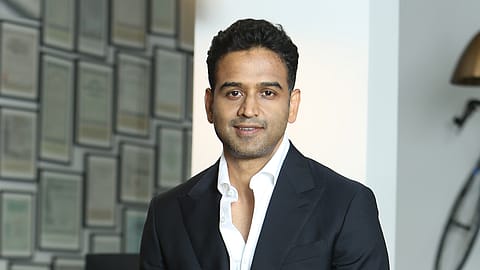Trading among toughest ways to make money: Zerodha CEO
For most traders living in the social media bubble, it must seem like everyone except you is killing it trading the markets, says Nithin Kamath.

Trading is one of the toughest ways to make money and the kind of volatility of the last few months makes it even tougher, says Nithin Kamath, the founder and chief executive of Zerodha, India's largest discount brokerage.
"For most traders living in the social media bubble, it must seem like everyone except you is killing it trading the markets. FYI, it mostly ain't real," Kamath says in a tweet, adding that bear market rallies are usually quite ferocious.
"While shorts make money faster compared to longs because markets tend to fall faster than they go up. But bouncebacks like these after a fall makes it really hard to book profits on time or continue holding shorts," the Zerodha cofounder adds.
In a series of tweets last week, Kamath had said: "Trading isn't just trading stocks, it's trading your time and efforts to do things, where the risk to reward is most in your favour."
While Kamath has stopped trading stocks actively, he considers Zerodha the biggest trade of his life. "The reason why we do what we do is that we believe that more Indians should back entrepreneurs by taking some risks. Investments that can create jobs and wealth locally, and can lead to more inclusive economic growth. Money lying idle in physical assets doesn't help the economy," he had said.
Commenting on startups last month, Kamath said that misjudging the market size and opportunity, then setting wrong expectations and chasing valuations are probably the biggest reasons why startups fail.
In an interview to Fortune India last week, Nithin's brother Nikhil Kamath said that the startup funding ecosystem is going to be difficult, at least for the next couple of years. "Personally, I feel that we have seen somewhat of a bubble over the last few years especially in startup investing. There is an arbitrage at play where public markets are actually significantly cheaper than private markets today," he said.
Recommended Stories
Kamath said that the cost of capital has gone up significantly in the West and that in turn will restrict investors from the regions from making risky bets on the Indian market. The local startup ecosystem relies heavily on external funding. "I think the startup funding ecosystem is going to be really difficult, at least for the next couple of years," Nikhil said.
"I think it will be tough time for public markets but it will be increasingly harder for startups. They have gotten so used to having so much excessive cash at hand to garner an audience and grow business... when that cash becomes harder to come by which it invariably will because of the cost of cash going up significantly, the question is if somebody is burning a hundred million dollars this year and they don’t get money for the next three or four years, then what happens?" he added.